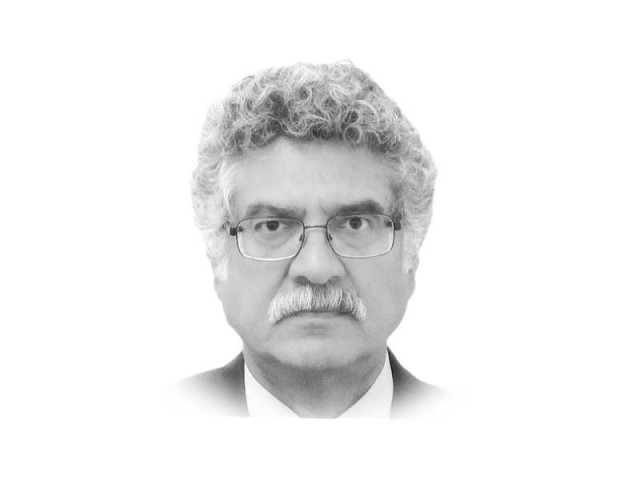Foreign policy challenges and opportunities for the new govt
With the most seats in the NA, PTI is likely to form the government at the Centre as well as in K-P and Punjab

The writer is a former Ambassador of Pakistan to the UN
There are both challenges and opportunities for the new government. First, the challenges. At the global level, a multi-polar world is emerging, characterised by increasing confrontation between the US, and China as well as Russia. Determined to retain global supremacy, and unwilling to accept China and Russia as equal partners in a new world order, the US has been enhancing its own power base for ‘full-spectrum dominance’, and strengthening existing alliances while also building new strategic partnerships. Apart from increased confrontation at the global level, this has regional implications for Pakistan with the burgeoning Indo-US partnership to contain China. Washington’s support for New Delhi’s regional hegemony confronts Pakistan with an existential threat. Pakistan’s rejection of Indian domination backed up by its nuclear deterrence against India is an obstacle to America’s desired order in South Asia.
The result is most obvious in two critical areas. The first is Pakistan’s domestic environment where the US with India would like to see a weak and pliable government that would abandon issues such as Kashmir and accept the Indian supremacy. To this end, they have promoted the narrative of a rift between the civilian and military leaderships. Indeed, this narrative has been used to discredit the 2018 elections, both before and after the polls, based on the allegations that the military controlled the outcome by backing the PTI and promoting “Islamist groups”. Of course, the election results have belied such accusations — the PTI’s opponents have done well in Punjab and Sindh while the 'Islamic' parties have been wiped out. Besides, independent external observers have endorsed the free and fair nature of the elections. Nevertheless, such charges continue to be made in the American/Western and Indian media, echoed by their touts in Pakistan. This will only add to instability within Pakistan — the covert Indo-US objective.
The second arena is Afghanistan where India has been encouraged by the US to play a more pro-active role while undermining Pakistan’s interests. Indians and Afghans are using the TTP and Baloch insurgents operating from Afghanistan to carry out terrorist attacks to destabilise Pakistan. This can only happen with American consent if not active support.
Consequently, the challenges for the PTI government in dealing with the US and their Indian allies would be immense. The first and most difficult task would be resolving the prevailing domestic political and economic crises. To defeat the nefarious Indo-US designs, all political parties need to place the national interest above their political ambitions.
Beyond the internal situation, Pakistan, fortunately, has other options and holds strong cards against the US and India, which it must use to protect its interests. America depends on Pakistan for air and ground access to its beleaguered troops in Afghanistan. Pakistan’s intelligence cooperation and counter-terrorism measures are also vital for Washington to extricate itself from its 17-year-old Afghan quagmire. Moreover, now that the US has finally acknowledged the need for a dialogue with the Afghan Taliban to evolve a political solution, Pakistan can play a key role. This would also help to improve relations with Afghanistan.
Washington also needs Islamabad’s cooperation in dealing with Islamic State terrorism to stabilise the Middle East as well as providing access to landlocked, energy-rich Central Asian states. We need to use this leverage to improve Pakistan-US relations, starting with full compensation of the Coalition Support Fund expenditure we have already incurred in counter-terrorism operations.
India, too, will ultimately need to engage with Pakistan to heal the bleeding wound of Kashmir and seek its cooperation to access Afghanistan as well as Central Asia. Moreover, the existence of credible nuclear deterrence between the two countries is a great equaliser, negating Indian regional ambitions.
Perhaps, the greatest foreign policy opportunity for Pakistan is its growing strategic partnership with a rising power like China, the substantive manifestation of which is CPEC. For both countries, CPEC is not just an economic opportunity but a strategic necessity, with far-reaching global impact. It provides Pakistan with the opening to leverage its pivotal geo-strategic location for mutually-beneficial gains with countries of South, Central and West Asia. The partnership with China will, therefore, be of critical importance not only to ensure Pakistan’s economic development but also to strengthen its relations across the global spectrum. Most immediately, China can also be a better option than the American-controlled IMF to overcome our current economic challenges.
One of the spin-offs already apparent is the changing positive dynamic in our relations with Russia which is not only supporting CPEC but also cooperating with Pakistan and China to stabilise Afghanistan. Beyond that, there are vast opportunities for cooperation, bilaterally as well as through the Shanghai Cooperation Organisation.
Iran and Turkey are also countries that share bilateral and regional interests, such as through the Economic Cooperation Organisation, and are on the same page with us in the emerging global multi-polar order.
As the most powerful country in the Muslim world with traditionally close relations with Saudi Arabia and the Gulf countries especially, Pakistan can play a more pro-active role to resolve intra-Muslim differences and promote greater cooperation bilaterally and through the OIC.
Last but not least, Pakistan, as a responsible nuclear-weapon state, is a vital factor for peace, security and stability in South Asia. But, given the dynamic nature of deterrence, we will need to ensure the continuing credibility of our nuclear deterrence in the years ahead.
Published in The Express Tribune, August 1st, 2018.
Like Opinion & Editorial on Facebook, follow @ETOpEd on Twitter to receive all updates on all our daily pieces.














COMMENTS
Comments are moderated and generally will be posted if they are on-topic and not abusive.
For more information, please see our Comments FAQ